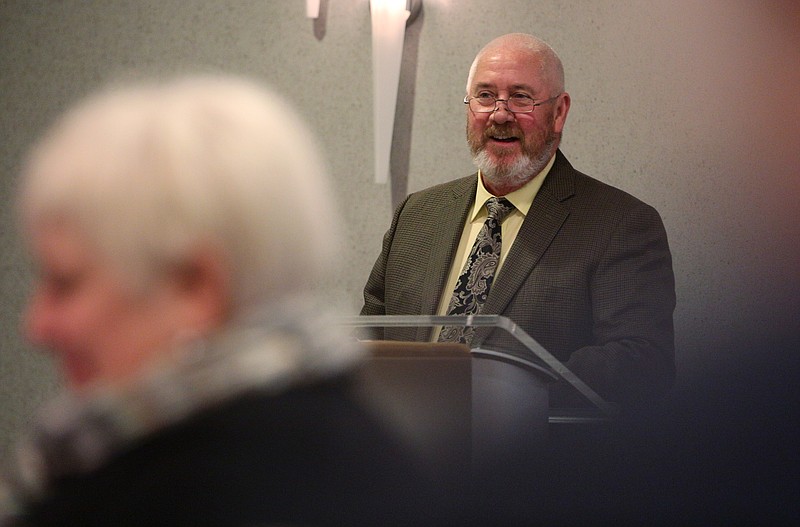The Hamilton County Commission will vote next week on whether to appropriate $350,000 to the Criminal Court clerk after a presentation during Wednesday's agenda session.
Vince Dean, who has been clerk of General Sessions and Criminal Court since 2014, told commissioners he needed the money because of a July 2018 federal court case that has caused his office to collect 20% less. Dean's office, which employs 55 people full time, handles expungements, manages court files, coordinates appearances for judges, oversees local bail bond companies and is in charge of collecting court costs and fines from defendants in criminal cases.
His staff salaries are partly funded by those collections.
The case in question came out of Nashville's federal court, where U.S. District Court Judge Aleta Trauger said the state cannot revoke a defendant's driver's license solely because they're too poor to pay. Since Tennessee law allowed them to do so in 2012, Tennessee clerks have used the threat of losing a driver's license to get people to pay costs. An estimated 146,000 licenses have been revoked as a result. According to Trauger's 2018 order, which is being appealed, the state cannot now revoke a license until it creates a mechanism that addresses a person's indigency when it comes to paying.
Lawmakers in the state Senate are expected to vote on a bill that would address Trauger's order by allowing judges to hold hearings that assess a person's ability to pay, give them a restricted license and put them on a payment plan.
But in the meantime, Dean said, losing the threat of revoking someone's driver's license is responsible for the reduction. On top of that, he said, his office has to split the collections it does receive with multiple state and county agencies. Attorneys and other court personnel told the Times Free Press that several different fines and fees, including a 2017 policy in City Court that calls on defendants to make a $200 down payment if they want to get on a payment plan, also may be contributing to nonpayment of court costs.
Commissioners on Wednesday asked about the federal case, the way Dean's budget works and how many indigent people owed costs.
"In looking at the population of the defendants we're talking about, these are individuals who are indigent, limited income. If we suspend their driver's license, what is that ripple effect?" asked District 5 Commissioner Katherlyn Geter. "Before the ruling passed what [was] that percentage of folks who were paying and [who] [could] pay their fees?"
Commissioners are scheduled to vote on the issue on May 1.
Contact staff writer Zack Peterson at zpeterson@timesfreepress.com or 423-757-6347. Follow him on Twitter @zackpeterson918.
